How the blockchain will give the media back to the people, to save the planet
INSURGE intelligence is launching its new crypto-economy for fearless, independent journalism that will empower action for change
by Nafeez Ahmed
Published by INSURGE INTELLIGENCE, a participatory investigative journalism platform for Open Inquiry and coordinated action in service of people and planet. Become an owner of the media revolution.
The media is broken.
It’s broken financially.
It’s broken in terms of content that actually means something, anything.
It’s broken in terms of ownership.
It’s broken in terms of its relationship to its audience.
And it cannot be repaired. It needs to be transformed.
That’s why my independent investigative journalism platform INSURGE is building a new blockchain project, PressCoin, to transform the media from the bottom up.
We’re not going to fix a broken system. We’re creating a new one.
No time to lose
INSURGE is building PressCoin, and moving to the next level of its journalism operations, because there is simply no time to lose. If we want to ensure a viable, beautiful future for our children, and their children, on a safe and stable planet, we need to act now.
And we need to act, first and foremost, within the realm of information: because right now, it is the absolute dysfunction of the global information architecture — represented in the intersection of mainstream media outlets, social technology platforms and giant digital aggregators — that is sowing confusion, and paralyzing us from taking the action required to take on global and local challenges.
Are you awake? If so, then you’ll agree with me that something is deeply wrong.
Look around you. The madness is plain to see.
Liberals fight conservatives and conservatives fight liberals. Progressives fight government, corporations and the super-rich. The super-rich fight the poor. Meanwhile, philanthropists, fueled by their own certainty and wealth, fight for justice or equality or for some poor hamlet in Africa. The president fights everyone, and everyone fights the president.
And while this charade continues, in the background, the extraction game accelerates —and absorbs the sum total of our collective actions and commitments ensuring nothing short of a tragic end in which humanity’s dysfunctional relationships with itself, other species, and the planet as a whole brings us toward catastrophe.
We are currently on course to breaching the greenhouse gas limit necessary to avoid dangerous climate change. The scientific consensus tells us that this course will likely lead to a largely uninhabitable planet by the end of this century — perhaps within our lifetimes, and almost certainly within our childrens’ lifetimes.
Donald Trump's victory isn't the most terrifying news this week. There's something even worse
www.independent.co.uk
www.independent.co.uk
Yet this hasn’t stopped us from accelerating our unsustainable extraction of the world’s resources. Various data points to the real possibility that we are depleting the world’s cheapest and most accessible mineral resources.
Exhaustion of cheap mineral resources is terraforming Earth - scientific report | Nafeez Ahmed
www.theguardian.com
www.theguardian.com
We are rapidly depleting the total value (EROI) of the energy we are capable of producing from existing fossil fuel resources, which has declined by nearly half in the last few decades. This doesn’t mean we’re running out of oil — we have more than enough to burn the planet all the way to climate catastrophe. But it does mean that even while the economic value of fossil fuels has haemorrhaged, the economic and environmental costs of producing it are rising. This is bad for the economy, for the planet, and for our future.
The implications of the declining energy return on investment of oil production
rsta.royalsocietypublishing.org
rsta.royalsocietypublishing.org
And so, an increasing number of economists and financial analysts are realizing that the very imperative of unlimited economic growth is cannibalizing itself.
The most likely outcome is that we are entering a fundamentally new era: a post-fossil fuels, post-capitalist, post-materialist, age where the old rules no longer apply, because they are obsolete.
AXIOM: industrial civilization is in the throes of a great disruption, a systemic transition which could either lead to regression, crisis and collapse; or a new way of working and living, a new mode of prosperity, a new narrative of success.
Scientific model supported by UK Government Taskforce flags risk of civilisation’s collapse by 2040
medium.com
medium.com
The global media industrial complex in its current form is not equipped to address this great disruption to civilization-as-we-know-it.
In fact, the global media industrial complex is literally incapable of meaningfully processing information in such a way that it produces, for a significant percentage of the human population, real actionable knowledge — real actionable knowledge that can render humanity capable of transitioning successfully into the new era.
Because, let’s get real. That’s what needs to happen if we’re going to make it to the 22nd century in the best possible shape.
Instead, the global media industrial complex today compounds the problems we are facing. How?
Its function is not to provide knowledge at all. The prevailing model of media is to monopolise and manpulate information flows to produce beliefs and emotions that will allow giant aggregators to maximize ‘clicks’, to maximize advertising revenues, to maximize profits — for a few.
So rather than creating knowledge, the global media industrial complex tends to generate competing, polarized narratives around which different audiences coalesce into segregated communities that cannot reconcile; it reinforces assumptions and beliefs without teaching critical thinking; it blunts an attitude of inquiry and openness while promoting the values and ideals of a banal left-right dichotomy that serves to fuel a global culture of mindless consumerism.
This prevailing media structure ends up constraining the public’s capacity to make grounded decisions. And that allows global ecological, energy, economic, social and other challenges to accelerate, while we argue amongst ourselves about ideology.
AXIOM: information flows are inexorably linked to dominant processes of profit-maximization for a tiny minority; so much so, that people’s relationship to information is managed as a control mechanism over attention and ideological persuasion. This control structure is based on citizens relinquishing their power to an authority whereby they have to believe or resist an ideology.
All this is happening because the global media industrial complex — the mechanism of humanity’s collective consciousness — is not free.
The unsavoury reality is that both ‘free press’ and ‘fake news’ outlets operate as a structural extension of an extreme form of predatory capitalism, using information to capture wealth for the few at the expense of the many, by capturing our minds.
We only have to peer under the hood to see this fact staring us in the face.
In the US, six huge transnational conglomerates own and control the entirety of the mass media, including newspapers, magazines, publishers, TV networks, cable channels, Hollywood studios, music labels and popular websites: Time Warner, Walt Disney, Viacom, Rupert Murdoch’s News Corp., CBS Corporation and NBC Universal.
In the UK, 71% of UK national newspapers are owned by just three giant corporations, while 80% of local newspapers are owned by a mere fivecompanies.
Globally, the largest media owners are increasingly digital. Today, the world’s largest media owner is Google, closely followed by Walt Disney, Comcast, 21st Century Fox and Facebook — which, though not as large as Google, is the fastest-growing media owner. Together, Google and Facebook monopolize one-fifth of global ad revenue.
These corporations control the bulk of what we read, watch and hear, including online. They define our understanding of the world and even ourselves. And yet, they reflect a tiny number of people who have a very narrow outlook on the world.
The directors and shareholders of these media conglomerates interlock with each other, forming part of what one study in the journal PLoS One describes as a “network of global corporate control.”
Examining the ties between 43,000 transnational corporations, the study by a team of systems theorists at the Swiss Federal Institute of Technology found that they are dominated by a core of 1,318 companies.
In turn, the web of ownership behind these core power-brokers track back to what the study described as a “super-entity” of 147 firms.
In many cases, senior executives of some of the largest global media conglomerates have simultaneously sat on the boards of defence industry giants, while interfacing with government.
AXIOM: most of what we read, watch and hear through the media serves, and is structurally conditioned by, a network of special interests that are self-supported and self-sustained.
To understand the power of these special interests to monopolize information in service to their own vested ends, we need look no further than the story of the world’s largest media owner of all.
Through the Google Glass
In January 2015, with the support of our Patreon crowdfund, INSURGE broke the exclusive story of how Google was founded and evolved under the wing of the US intelligence community.
My report uncovered documentation, and an on-the-record insider source, proving that during his development of the core code behind the Google search engine as a Stanford University postgraduate student, Sergey Brin had received seed-funding from an intelligence community programme administered by the Central Intelligence Agency (CIA) and the National Security Agency (NSA).
This was not necessarily unusual — the intelligence community has long been involved in Silicon Valley for all sorts of obvious reasons. What’s interesting is that you probably never knew about how this worked in relation to Google. And that says a great deal about the way the global media industrial complex operates.
In my on-the-record interview with a former US defence contractor in charge of the programme, I received stunning confirmation that from inception, to incorporation, Google co-founder Brin met regularly with two people who were not Stanford faculty at all: Dr. Bhavani Thuraisingham and Dr. Rick Steinheiser.
Both were representatives of a US intelligence community research programme on information security and data-mining, the Massive Digital Data Systems (MDDS) initiative, which was sponsored by the NSA, CIA and the Director of Central Intelligence.
The MDDS programme is openly referenced in a paper co-authored by Brin and fellow Google co-founder Larry Page while at Stanford, specifically highlighting its role in financially sponsoring Brin in the development of Google.
In their 1998 paper published in the Bulletin of the IEEE Computer Society Technical Committeee on Data Engineering, the Google co-founders describe the development of a tool called PageRank, which in turn is being used “to develop a novel search engine called Google.” Through an opening footnote, Sergey Brin confirms he was “Partially supported by the Community Management Staff’s Massive Digital Data Systems Program, NSF grant IRI-96–31952”.
Thuraisingham is currently the Louis A. Beecherl distinguished professor and executive director of the Cyber Security Research Institute at the University of Texas, Dallas. In the 1990s, she worked for the MITRE Corp., a leading US defense contractor, where she managed the MDDS initiative.
“We funded Stanford University through the computer scientist Jeffrey Ullman, who had several promising graduate students working on many exciting areas,” Prof. Thuraisingham told me. “One of them was Sergey Brin, the founder of Google. The intelligence community’s MDDS program essentially provided Brin seed-funding, which was supplemented by many other sources, including the private sector.”
In an extraordinary article hosted by the website of the University of Texas, Thuraisingham attaches the copy of an abstract of the US intelligence community’s MDDS programme, presented to the “Annual Intelligence Community Symposium” in 1995. The abstract reveals that the primary sponsors of the MDDS programme were three agencies: the NSA, the CIA’s Office of Research & Development, and the intelligence community’s Community Management Staff (CMS) which operates under the Director of Central Intelligence.
Earlier on in the article, Thuraisingham reiterates that she and her colleague at the CIA, Dr Steinheiser, regularly met Brin to hear him present on his work developing Google:
Brin and Page officially incorporated Google as a company in September 1998, the very month they last reported to Thuraisingham and Steinheiser.
Over the next decade, Google continued to be nurtured by various government agencies, private sector conglomerates and global financiers, especially through a nebulous Pentagon think-tank known as the Highlands Forum, where such networks convene regularly to this day.
The response of the global media-industrial complex to this story is instructive.
It was totally blacked out in the English-language media: except being recommended by the US tech news site Gigaom, which mentioned the story in the context of another report on Wikileaks and Google. David Meyer, a senior writer at Gigaom, described the investigation as follows:
“An interesting, if extremely dense, account of Google’s longstanding interactions with US military and intelligence was published on Medium last week.”
The story was also picked up by a few mainstream foreign outlets. A senior Forbes editor covered my story, but it was only available in Czech. The German daily Frankfurter Rundschau also reported my findings prominently, along with the Hungarian newspaper Novilist.
But that was all. This has very important implications that deserve careful scrutiny: In short, the inside story of Google’s seed-funding and founding by the CIA and NSA breaks into the open — but not a single English-language newspaper wants to cover or even acknowledge the story.
Yet what could be bigger news, than one of the world’s biggest ‘news-facilitators’ being so closely aligned with the US intelligence community at birth?
The lack of interest is not the result of a conspiracy. It’s the predictable outcome of the fact that the global media industrial complex represents a highly centralized institutional structure that perpetuates a culture of slavish obedience to power.
INSIGHT: the global media industrial complex largely obscures important knowledge about the very structure and nature of power. That’s why this is probably the first time you’ve seen direct evidence that the most powerful media owner in the world, Google, was at inception brought into the world with the support of the US intelligence community.
In general, global media technology powerhouses like Google are often conceived in ways we don’t understand. This grants us some insight into the opaqueness of how power really works.
Power and control
But this is not about whether or not Google is uniquely ‘evil’. It’s about a wider pattern of incestuous ownership patterns and social networks across the global media landscape.
Consider William Kennard. He previously served on the board of the New York Times and became chairman of the US Federal Communications Commission. He then joined the massive defence and technology investment firm, the Carlyle Group, as Managing Director, where he led investments in telecommunications and media.
Caryle Group also happens to be a major defence contractor, which majority-owns Booz Allen Hamilton, the notorious corporate giant managing several NSA mass surveillance programmes.
Kenard went on to become US Ambassador to the EU under Obama. In that role, he pushed for the highly secretive, pro-corporate Transatlantic Trade and Investment Partnership (TTIP) negotiations, while stonewalling digital rights management and internet control issues in a way that was amenable to both Republicans and Democrats.
Carlyle was one of the biggest beneficiaries in terms of profits after 9/11 changed the world forever, ushering in the endless ‘War on Terror’. Its investors included members of the Saudi royal family, the bin Laden family and the Bush family.
Or consider John Bryson, who served as Obama’s Secretary of Commerce until 2012. Prior to that he sat on the board of directors of the Walt Disney Company for about a decade, which of course owns the American Broadcasting Corporation (ABC). He was also on the board of directors at giant US defence contractor Boeing.
Despite resigning from both positions after his administration appointment, government disclosure filingsrevealed that his Disney stock and option assets totaled about $951,660, in addition to a deferred-compensation plan worth more than $1 million; while at Boeing he was owed between $1 and $5 million under a deferred-compensation package, plus owning Boeing stock options worth between $250,000 and $500,000.
Or consider Aylwin Lewis, another Walt Disney Company director who simultaneously has been a longtime director at Halliburton, one of the largest transnational oil services firms formerly run by Dick Cheney. A Halliburton subsidiary, Houston-based KBR Inc., received $39.5 billion in Iraq related contracts over the last decade — many of which were no-bid deals.
Or consider Douglas McCorkindale, who has been a director of the giant media conglomerate Gannett for decades, and is President of two Gannet subsidiary spin-offs, Central Newspaper Inc. and Gannett Satellite Information Network.
Gannett is the largest US newspaper publisher measured by daily circulation, and also owns major US TV stations, regional cable news networks, and radio stations.
McCorkindale has also served as a director at the US defence giant, Lockhead Martin, for about a decade, resigning last April. He has also been, during this period, a director of the Associated Press and of various investment companies in Prudential Mutual Funds.
Consider, then, that these individuals simultaneously held senior positions in global media conglomerates and giant defence contractors. They profited directly from the dividends of ‘reconstruction’ in devastated war zones like Iraq and Afghanistan, on the back of wars enabled by what was, effectively, their own propaganda.
And notice that this is a bipartisan problem.
By some estimates, as many as 4 million people have been killed as a consequence of decades of Western military invasions and occupations in Iraq alone.
That’s another credible and horrifying figure you probably won’t have heard of until now.
Consider that the vast majority of the public have no clue about the scale of this violence. The global media industrial complex promotes the lowest possible estimates, despite the conflicts of interest and scientific fallaciesaround such low figures.
Consider that these deaths in Iraq are a mere fragment of the continuum of violence wrought by Western military interventions in over 70 developing nations across Asia, Africa, South America and the Middle East since 1945 until today.
In his book, Unpeople: Britain’s Secret Human Rights Abuses (2004), British historian Mark Curtis calculates that the total number of direct and indirect deaths from these interventions is approximately 8.6–13.5 million — a conservative underestimate, he qualifies.
Have you ever heard of that number?
Likely not. And if you did, it was probably not because of the global media industrial complex. This number remains largely unknown to most journalists and editors today.
The dead are not even a footnote in our collective memory.
Is this a free press capable of meaningfully speaking truth to power?
INSIGHT: the ‘free press’ in its current form is structurally incapable of generating systemic knowledge and inspiring transformative actions, that can help us transition to new ways of working and playing that empower people in harmony with the planet.
This is why much of the media is struggling; why newspaper circulation is declining; why total advertising revenue among publicly traded media companies — across both print and digital — is dropping; why profits are falling for Viacom, Walt Disney, Time Inc, News Corp, and beyond; why fully 65% of digital ad revenue is controlled by just five giant technology firms, Google, Facebook, Yahoo, Microsoft and Twitter; why the public’s trust in global media is plummeting.
It’s not simply because the digital landscape has given new power to ‘fake news’ entities to compete. It’s because the ‘free press’, in the first instance, failed to truly connect with people in a way that reflects the real operation of power in the world.
And so the global Crisis of Civilization — where we see an escalating convergence of political extremism, ecological destruction, and economic volatility, working together to undermine the fabric of our societies and families, decapitating the hopes of our youth — and the global crisis of information, are clearly one and the same reality.
The Crisis of Civilization (2011) SEE: https://medium.com/insurge-intelligence/we-are-using-the-blockchain-to-give-the-media-back-to-the-people-join-us-9a8f2953f589
The commodification of information is part and parcel of the commodification of the planet.
It doesn’t have to be this way.
That’s why we’re building a different approach to information: a system that provides people with the means to acquire meaningful knowledge about themselves, the world around them, and the tools to interact in a way that will enhance both.
INSIGHT: we urgently need a new, independent, financially powerful but fundamentally sustainable global information system that generates systemic knowledge and inspires transformative actions, which can help us transition to new ways of working and playing that empower people in harmony with the planet.
Welcome to the media revolution
Through PressCoin, INSURGE is co-designing a unique blockchain platform for Open Inquiry, fit for the 21st century and beyond, one which represents a new model of independent media in the public interest.
This new model puts people and planet at the heart of its operations, investigating power to empower people and save the planet.
Our journalism is holistic in its scope, fearless in its integrity, rigorous in its research, and driven by the values of compassion, truth, and justice.
We chase and break the stories that no one wants to cover, and shine a light on the cracks between the headlines.
We do not blindly follow the treadmill of the news cycle: we are transforming the news cycle.
At the heart of PressCoin is INSURGE’s new journalism format — Open Inquiry — which draws on complex systems sciences to bring in multiple disciplines and beats to expose what’s really driving the big issues of the day. Our Open Inquiry format contextualizes scenarios by surfacing assumptions, highlighting verifiable facts and data-points, and flagging up the core insights all our journalism produces.
This format aggregates ‘axioms’, ‘insights’ and ‘actions’ from our articles (and other multimedia productions) into a growing body of public intelligence that helps our users join the dots on the world’s biggest challenges, and what can (and is) being done to solve them.
And most critically, our platform facilitates generative conversations that reward our readers and viewers for the insights they contribute, the new journalism that those insights inspire, and the real-world change actions that those conversations catalyse — whether that’s creating new services, launching new projects, or building new ventures offering civic, economic and ecological solutions.
That’s why we describe INSURGE as a public intelligence platform and action network.
At the heart of the platform is a unique journalistic process premised on:
- breaking through partisan political paradigms to do deep reporting with integrity that arms users with knowledge, but not ideology; that focuses not simply on being right, but on generating shared meaning;
- transdisciplinary reporting which crosses traditional boundaries of knowledge specialization by seeking out interconnections, synergies, parallels and tensions (across climate, energy, food, economy, war, terror, the police-state, and beyond), and bringing them to the fore;
- a bespoke design in which each story, although self-contained, represents a single stepping stone that is part of a wider journey of exploration, where users can connect with a whole branching network of interwoven multimedia stories;
- investigation with a purpose, because each story is told not simply to uncover the deeper workings of power today, but to unveil in that very process the possibility of change;
- advocacy through connecting users with each other as knowledge-seekers and change-makers in their own right, as well as connecting them with real-world projects, businesses, enterprises, charities, community groups, among others on the frontlines of creating solutions for the challenges we investigate.
We are achieving this in the following ways:
- Crowd-membership: a community for change
We aim to put people at the heart of our operations through a membership programme which draws on subscription-based crowdfunding to enfranchise users into a long-term journalistic experience of Open Inquiry.
Subscriptions grant users varying levels of access to a deeper story-telling experience with meaningful potential real-world impact, connections with like-minded knowledge-seekers and change-makers, and the opportunity to interact intimately with our journalists and editors as part of an ongoing co-design process to build and enhance the platform.
Our blockchain platform, PressCoin, augments this subscription-based revenue backbone into a powerful mechanism to track and measure participation across all our readers, users and contributors: and to redistribute revenue shares back to them on the basis of their participation.
Unlike any other cryptocurrency, the PressCoin token is an equity token whose value is derived from the total revenue generated by all the platforms on the PressCoin system, including the flagship platform INSURGE. Not only does a subscription give you PressCoins which you can use on the platform, you can also earn PressCoins by contributing in ways that are generative: creating insights, exploring possibilities for change, and launching real-world actions which can be funded by fellow participants using PressCoin within the blockchain.
PressCoin will also be the first cryptocurrency which you will be able to use seamlessly in the real world, using our application Cointype — a powerful blockchain exchange which allows you to exchange crypto and fiat currencies for zero fees. With the power to exchange your PressCoins for any currency you want with the swipe of a finger, you will be able to use revenues earned from the PressCoin system to add to your income, and buy and sell outside the platform.
So our members won’t just be passive subscribers. They are our backbone, and our conscience, our first port of call in the development of the platform, meaningful stories, as well as the best ways to make the platform work, and improve what we do.
- Security
The private social network that we’re designing to effectively power our platform will be exactly that.
Private. Secure. Safe.
We do not seek to monetize information gleaned from our users’ online activities. Instead, we seek to maximize their access to knowledge which they can use in confidence to enhance their own lives, the lives of others, and the Earth itself.
In contrast to Facebook and Google, any monetary value for the data generated by your activity on the platform will be yours, for distribution through fair revenue shares — not monopolized and sold to corporate third parties. The real value of all this data will be its usefulness to people and planet: the insights it can generate; and how it can help support and catalyse you to take constructive action in the world.
- Financial power
Special interests can never pull our strings. That’s because INSURGE doesn’t do advertising. Our financial model is instead based on multiple revenue streams: apart from crowd-membership, that includes commissioned articles, series and white papers; licensing of our proprietary processes; market and political analysis; channel (video, etc.) and symposia; combination of subscriptions and revenue sharing for collaborations.
The PressCoin/INSURGE journalism network includes luminaries like war correspondent John Pilger, Washington Post columnist Barkha Dutt, and digital pioneer Lance Weiler (identified as among ‘the 18 who changed Hollwood’ by Businessweek) — comprising a start-up follower base of millions of people. Even with a 5% conversion rate from followers to subscribers, our revenue-backbone gives us a solid foundation, and guarantees that the value of our cryptocurrency, PressCoin, will be tied to real, sustainable and growing revenue — as we continue to grow our readership and participation networks.
In this way, we are immunizing our editorial structures from the undue influence of special interests, rendering us free to engage in truly no-holds-barred, Open Inquiry, for people and planet.
- Participatory story-making
We are building a team and a process to write, create, and produce stories of the highest quality, which work not only as self-contained units, but more importantly, as an opportunity for readers, users, listeners and viewers to embark on a deeper journey of discovery on the issues raised in the piece, and the cross-cutting questions they open up.
This also means joining the dots across multiple issues and stories, within and across all our stories, by embedding the connections between them within the text, audio and video, rather than simply positioned in a side-bar or at the end as an afterthought.
As such, our stories won’t just be static, isolated fixed items. Just as the real-world is full of change and complexity, our platform is open and responsive to constructive comment and critique. We are creating a system that rewards generative user comments, and uses them to build new and better stories.
- Visionary advocacy
We are not passive purveyors of ‘news’, nor fakely dispassionate observers of the world.
We are active participants, aware of ourselves as subjects, seeking objectivity through Open Inquiry and values-based engagement with the world, in service to people and planet.
In contrast, existing platforms amplify divisiveness. They promote a sense of apathy and resignation about the state of the world, and what can be done about it — and they do it under the guise of ‘impartiality’.
The PressCoin system gives INSURGE a new kind of social network that does the opposite. By using a journalism format explicitly designed to train the mind in critical thinking skills that can cope with polarity and contradiction, navigate complexity, and move into generative conversations for possibility, we connect hard-hitting reporting with constructive outcomes.
That means, we’re not just investigating ‘the bad news’ — we’re on the frontlines of the revolution, revealing, prototyping and testing real-world solutions to our global challenges, all in one blockchain platform.
And that’s also why, under PressCoin, INSURGE will straight out of the gate lead the development of four other platforms, to address some of the most fundamental deficits in journalism today: NEXTELECTION, an election tracker that tells the stories of challengers over incumbents; MOJONOMY, a platform for citizen journalists around the world; ZOLORI, which focuses on local news; and CHICKENSOUP.NEWS, a news outlet bent on telling positive stories.
What this means…
Our new platform represents a fundamental break with the old paradigm of industrial-era journalism.
We are building a platform dedicated to people and planet, that bridges the gap between creators and consumers of ‘news’, that overcomes the broken financial model of churnalism, and builds sustainability by creating value for users at all scales.
Our platform represents a new opportunity to permanently transform how journalism is done today.
We are lifting the bar to a degree that forces our competitors to either lift with us, or sink.
And in so doing, we are planting the seeds of a new way of enhancing and sharing knowledge with a view to forge a better world for everyone.
Our platform will make every story you read, watch, hear an opportunity to embark on a journey of exploration and discovery; a resource opening up into a network of stories that can open new insights into the world, ourselves, and our societies; and an opportunity to engage in, and advance, the storytelling process through curated and collaborative conversation.
Our platform will create opportunities to connect with people like you, hungry to learn more about the world, your place in it, and how to enhance both; while uncovering the structures, systems and interconnections driving global and local events.
Our platform will also create opportunities to showcase the work you’re doing to change the world; to connect with others creating change in their own contexts —and to share best practice in the development and design of projects to empower people and save the planet.
Welcome to the media revolution: the intelligence platform and action network for the change we need to be in the world, right now.
ACTION: You can find out more about PressCoin by visiting our websiteand reading our whitepaper. The PressCoin ICO pre-sale goes live on 22nd November 2017. Join our pre-ICO crowdsale, and become an investor and owner of the media revolution.


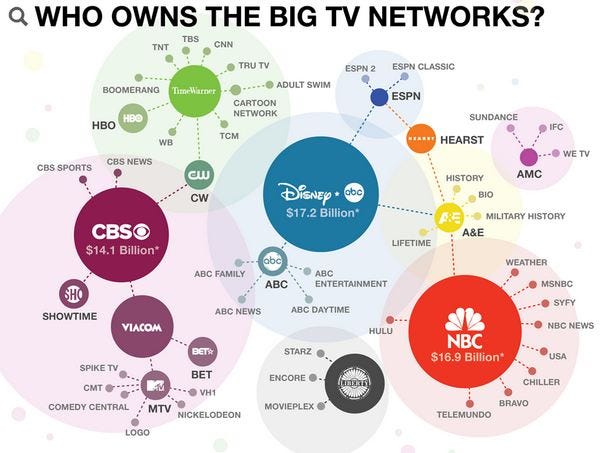
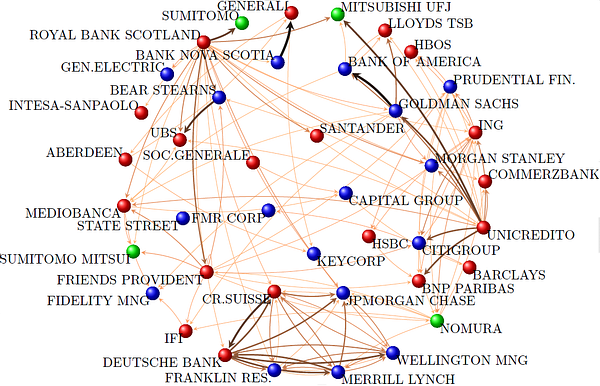



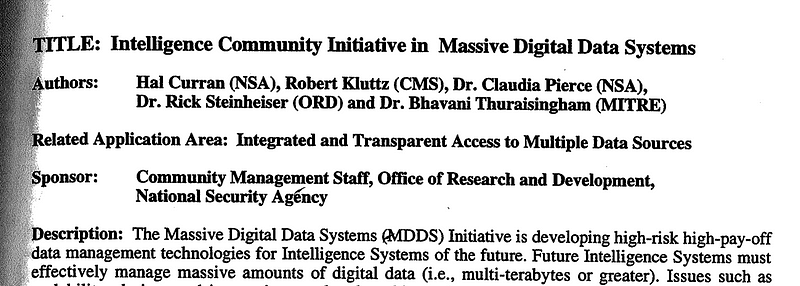

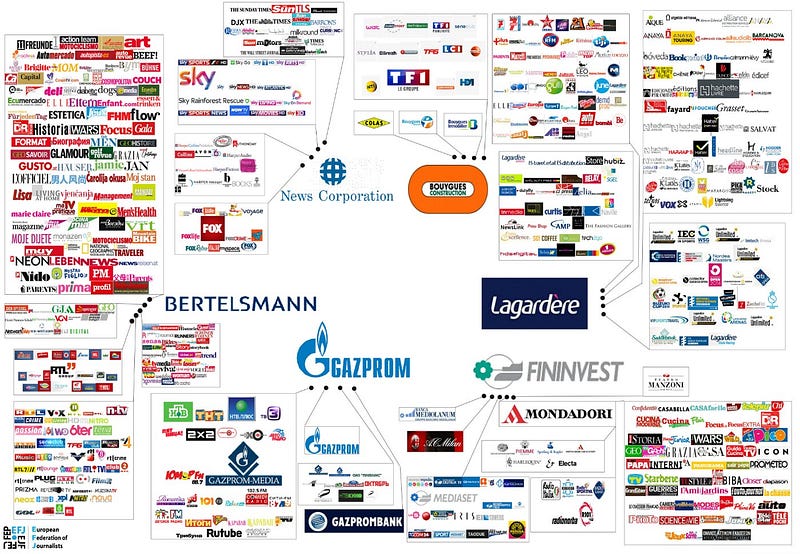
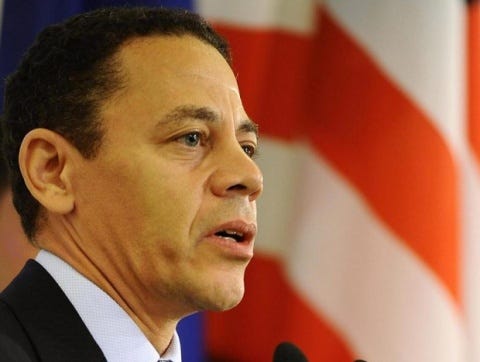
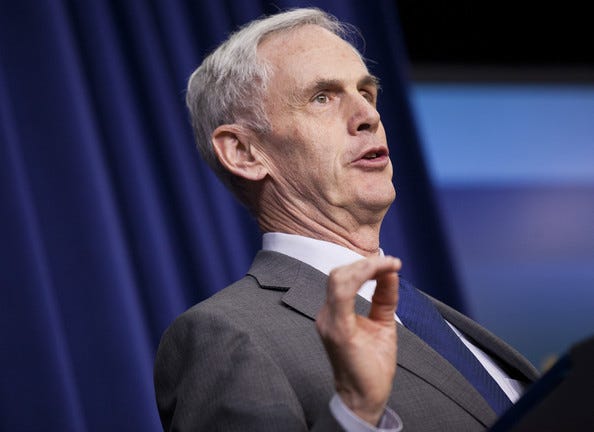
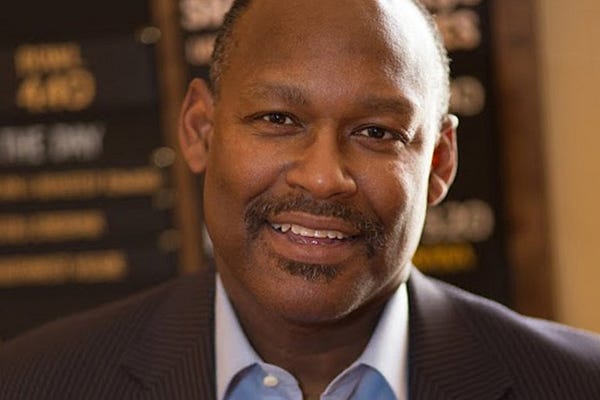
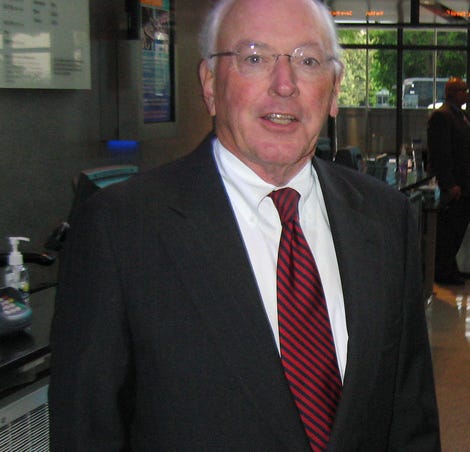






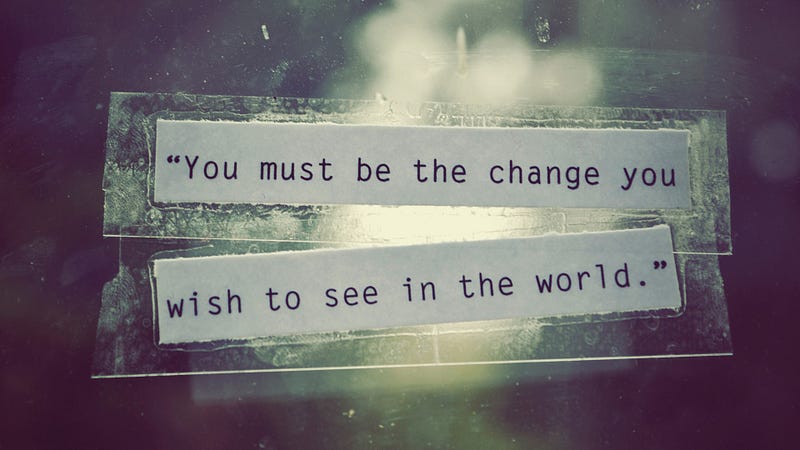




Geen opmerkingen:
Een reactie posten